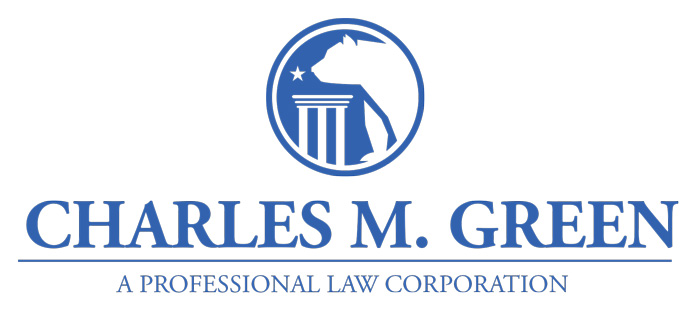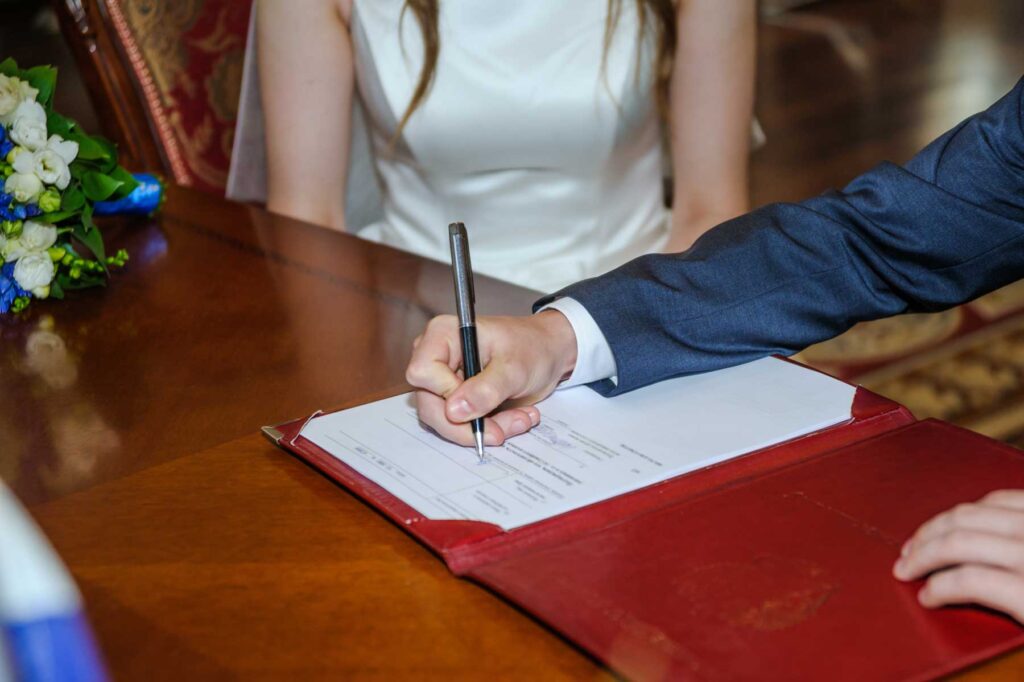Looking for California marriage records? This guide cuts through the complexity, detailing how to procure public or confidential marriage records in California. Public records are accessible by anyone, while confidential records keep your marriage details private. We’ll walk you through the steps to access these records, what differentiates them, and where to find them, giving you all the information you need without any fuss.
Key Takeaways
California offers two types of marriage licenses: public, which are accessible to anyone and may contain sensitive information, and confidential, which provide privacy by not being publicly accessible and are available to couples living together.
Public marriage records from various timeframes are accessible through online databases like FamilySearch.org and Ancestry.com, or directly through the County Clerk’s Office, with the risk of personal data exposure and identity theft.
While both public and confidential marriage licenses validate a union, the choice between them does not affect legal proceedings such as divorce or child support obligations.
Understanding California Marriage Records
Marriage records in California are vital as they serve as legal proof of marriage, required for various legal purposes. The Golden State offers two types of marriage licenses: a public marriage license and a confidential marriage license. While both licenses validate your union, they differ in their privacy levels and accessibility.
Nevertheless, public marriage records may sometimes harbor unreliable or inaccurate information, resulting in issues like false positives or missing records. This underscores the need to comprehend both types of marriage licenses and verify the accuracy of your marriage documentation.
Public Marriage Records
In California, public marriage records provide legal documentation of a couple’s union and are available to the public. These records, maintained by the California Department of Public Health-Vital Records, span from 1905 to 1999 and from 2008 to 2022. This availability of public marriage records offers transparency, but it also means that your marriage details are part of public record.
Interestingly enough, there are no copies of public marriage certificates for the years 2000 to 2007 and 2023 within the California Department of Public Health-Vital Records. For these years, you would need to visit the respective County Clerk’s office where the marriage license was issued.
Confidential Marriage Records
Unlike public marriage licenses, confidential licenses, such as a confidential marriage license in California, ensure privacy by excluding personal details and marriages from public records. This type of license is particularly beneficial for couples who value their privacy and wish to keep their marriage details confidential, as it leads to obtaining a confidential marriage certificate. Confidential marriages provide an added layer of privacy for those who choose this option.
What makes someone eligible for a confidential marriage license? The prerequisites for acquiring one can differ across jurisdictions. The answer lies in your living situation. To obtain a confidential marriage license in California, couples must be living together as spouses at the time they apply. In addition, confidential marriage licenses in California do not require witnesses at the ceremony or on the license. Authorized notaries and the County Clerk’s office can issue these licenses, providing the convenience of issuing them at any given time.
How to Access Public Marriage Records in California

There are various channels available to access public marriage records in California. Depending on the timeframe, these records can be accessed through online databases such as FamilySearch.org, which provides a free index for records prior to 1905. For marriage records from 1905 to 1952, individuals can refer to the copies held by the California Department of Public Health’s Vital Records or through FamilySearch.org.
For more recent marriage records post-1952, you can turn to FamilySearch.org for records covering the years 1949-1959 and 1960-1985. Alternatively, Ancestry.com provides records from 1960-1985. Certified copies of marriage records can also be obtained through the County Clerk’s Office, either in person or by mail. Nevertheless, potential risks such as data misuse and identity fraud could arise when using unverified sources to access public marriage records.
Online Resources
Accessing public marriage records in California is convenient and efficient through online resources. These platforms provide essential records for various timeframes and with variable amounts of detail. Comprehensive platforms like FamilySearch.org, the Western States Marriage Index, and Ancestry.com compile marriage records from within California and other jurisdictions, making them accessible in one place.
The California Birth, Death, and Marriage Record (CDMR) Index program also provides access to marriage records for the years between 1960 and 1985. Given the wide array of resources available, the process of accessing public marriage records has been simplified.
County Clerk’s Office
In addition to online resources, the County Clerk’s Office in California can provide certified copies of marriage records upon request. To request these records, individuals can submit an online electronic application through third-party platforms accredited to transmit requests to the County Clerk’s Office where the marriage license was issued. For marriages that occurred in Los Angeles County since 1852, records can be requested directly through the VitalChek Network, Inc..
On the other hand, if an online request is not viable or the record is not digitally available, the requester can get in touch with the registrar or recorder office in the county where the marriage transpired, or visit in person to request a copy using a marriage record application form. It’s important to note that obtaining a certified copy of a public or confidential marriage record from the County Clerk’s Office costs $17, and online requests are typically processed within 20 working days.
Obtaining a Confidential Marriage License in California
For couples in California who value privacy in their marriage details, securing a confidential marriage license could be the perfect choice. This entails meeting certain eligibility requirements and adhering to the application procedure.
According to California law, both parties must meet the following requirements to be eligible for a confidential marriage license:
Both parties must be at least 18 years old.
The couple must be living together as spouses at the time they apply for the license.
They must sign an affidavit affirming this fact.
Eligibility Criteria
While the eligibility criteria for a confidential marriage license are straightforward, they are quite specific. As mentioned earlier, both individuals applying for a confidential marriage license must be 18 years of age or older. This age requirement ensures that both parties are legally capable of entering into a marital contract.
Additionally, a unique requirement for a confidential marriage license is cohabitation. The parties seeking a confidential marriage license must be living together as spouses at the time of their application. This requirement aligns with the purpose of a confidential license, which is designed to protect the privacy of couples who are already living together as spouses.
Application Process
Once the couples meet the eligibility criteria for a confidential marriage license, they can move forward with the application process. This involves visiting the County Clerk’s Office or an authorized notary together and presenting valid photo identification for application and payment of the required fee.
A confidential marriage license can be registered in the county where it was purchased and obtained in any county within California, irrespective of where the couple plans to marry. The cost to apply for a confidential marriage license varies by county, for example, it’s $85 in Los Angeles County. Authorized notaries and attorneys in California can issue and finalize these licenses, making the process more convenient for couples.
Legal Implications of Confidential Vs. Public Marriage Licenses
One might question if any legal differences exist between public and confidential marriage licenses, especially in relation to divorce or child support obligations. Nonetheless, the type of marriage license does not significantly influence these legal proceedings. For instance, a confidential marriage license does not affect the legal process of divorce, annulment, or legal separation in California, with the proceedings being the same as with a public marriage license.
Furthermore, it’s worth mentioning that the type of marriage license does not influence child support obligations. In California, child support is calculated based on state guidelines that consider the income of both parents and the needs of the child, irrespective of the marriage license’s confidentiality.
Divorce Proceedings
When it comes to dissolving a marriage, the type of marriage license plays no role in the divorce proceedings. Whether your marriage license was confidential or public, the legal process for divorce, including filing a petition, serving documents, and adhering to California’s divorce laws, is the same.
Furthermore, California is a no-fault divorce state, so the grounds for divorce are not impacted by whether the marriage license was confidential or public; irreconcilable differences are sufficient to obtain a divorce. It’s also important to note that divorce records are not automatically made private by a confidential marriage license; most divorce proceedings are public record in California, but sensitive information may be protected.
Child Support Obligations
When it comes to child support obligations, the type of marriage license, whether confidential or public, does not affect the determination of these obligations in California. Child support is calculated based on state guidelines that consider the income of both parents and the needs of the child.
It’s important to note that these state guidelines, which prescribe the legal obligation to pay child support, are not influenced by the privacy level of the marriage license. This means that regardless of the type of marriage license you obtained, your child support obligations would be determined in the same manner.
Role of Wedding Officiants in California
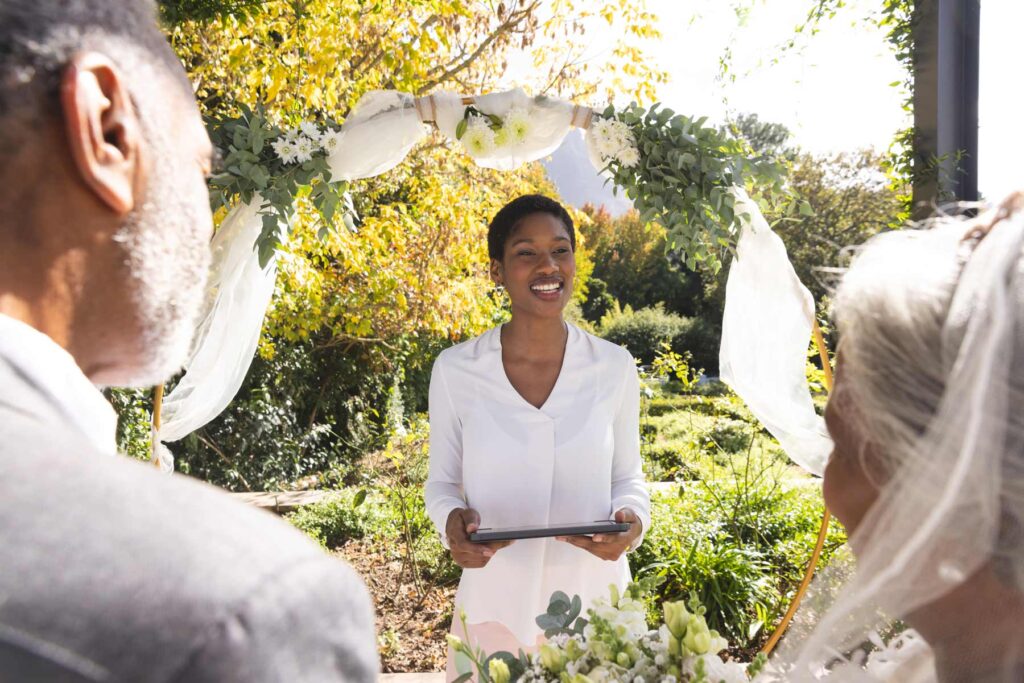
In California, wedding officiants serve a key role in the marriage process. Their duties go beyond just conducting the wedding ceremony; they also play a key role in signing and filing both public and confidential marriage licenses. Notably, in California, wedding officiants are not required to register with any government office prior to performing a marriage ceremony.
Yet, after officiating a marriage, the officiants must:
Submit the confidential marriage license
Fill out the solemnization section
Return the license to the county clerk within a span of 10 days post-ceremony
If the public license is lost, an affidavit must be filed within one year.
Signing and Filing Public Marriage Licenses
In the case of public marriage licenses, both the wedding officiant and the couple, who are only the parties involved, are legally mandated to complete and sign the legal document. Moreover, the signing process mandates the presence of at least one adult witness who must also sign the document.
After the wedding ceremony, the officiant has a legal responsibility to return the completed public marriage license to the County Clerk or Recorder’s office within 10 days from the ceremony. This ensures that the marriage is officially recorded and validated.
Signing and Filing Confidential Marriage Licenses
In the case of confidential marriage licenses, the process is somewhat simpler. No witnesses are required to be present or to sign a confidential marriage license. This can greatly simplify the officiant’s signing process, especially in more private ceremonies.
Similar to public licenses, the officiant is given a 10-day period to return the signed confidential marriage license to the county recorder’s office for registration following the marriage ceremony. The officiant must adhere to the following instructions regarding the return of the confidential marriage license:
Method: The license must be returned using the specified method provided by the county recorder’s office.
Location: The license must be returned to the designated location specified by the county recorder’s office.
Timing: The license must be returned within the 10-day period following the marriage ceremony.
Responsible person: The officiant is responsible for returning the license.
Protecting Your Personal Information in Marriage Records
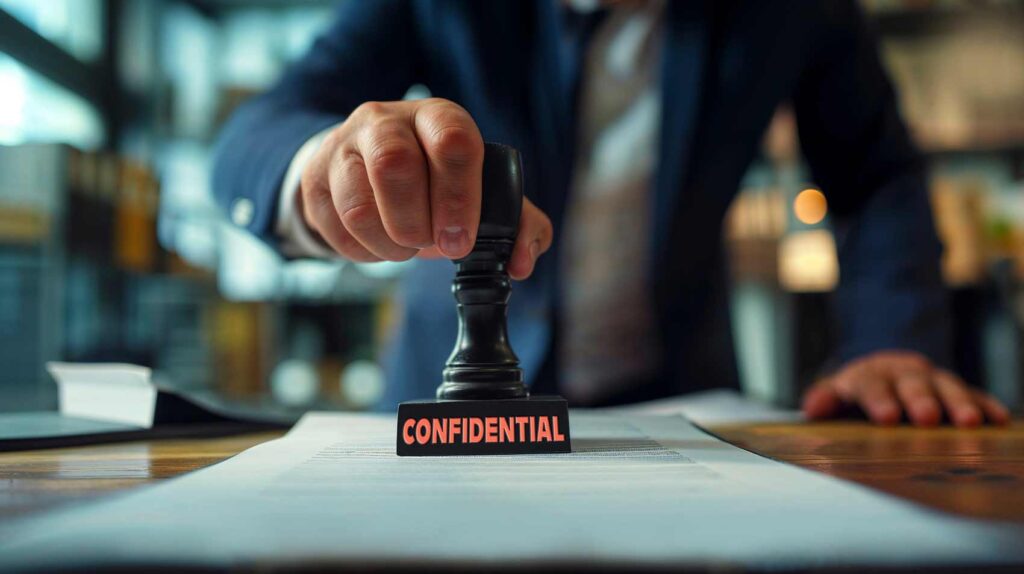
Given the sensitive nature of the data they contain, it’s absolutely vital to safeguard your personal information in marriage records. The state of California has implemented measures to help prevent identity theft related to these records. Nevertheless, understanding the risks tied to public marriage records and the strategies to safeguard your personal information is crucial.
Risks Associated with Public Marriage Records
Public marriage records can expose sensitive personal information, such as:
one’s relationship status, which could lead to privacy intrusions and unwanted attention
full names of both parties involved
date and location of the marriage
names of witnesses and officiants
Furthermore, the increased accessibility of public marriage records has raised concerns over identity theft if these records are accessed by malicious parties.
Personal details such as addresses or maiden names contained in public marriage records can be utilized by identity thieves for fraudulent purposes. This highlights the importance of being cautious about the information you share and with whom you share it.
Tips for Protecting Your Personal Information
If you are worried about the risks associated with public marriage records, there are steps you can undertake to shield your personal information. Opting for a confidential marriage license can protect couples’ privacy by keeping marriage details inaccessible to the public. It’s also crucial to order marriage certificates through secure and verified services such as VitalChek or official county services.
Regularly reviewing and controlling the distribution of certified copies of marriage records can help prevent misuse of personal information and identity theft. Furthermore, you can reduce the exposure of personal information by:
Not sharing details on non-secure platforms
Not publicizing the marriage on easily accessible media
Considering the use of aliases or initials when making public announcements, if legally allowed.
Closing Thoughts
Understanding the nuances of marriage records in California is crucial for couples planning to tie the knot and for those who need to access these records for legal purposes such as a future divorce process. The choice between a public and confidential marriage license depends on a couple’s preference for privacy and accessibility.
Regardless of the type of marriage license, it’s important to safeguard your personal information and understand the legal implications of your marriage license, especially in matters of divorce and child support obligations. Remember, your marriage license is more than just a piece of paper; it is a legally binding document that carries significant implications.
Frequently Asked Questions
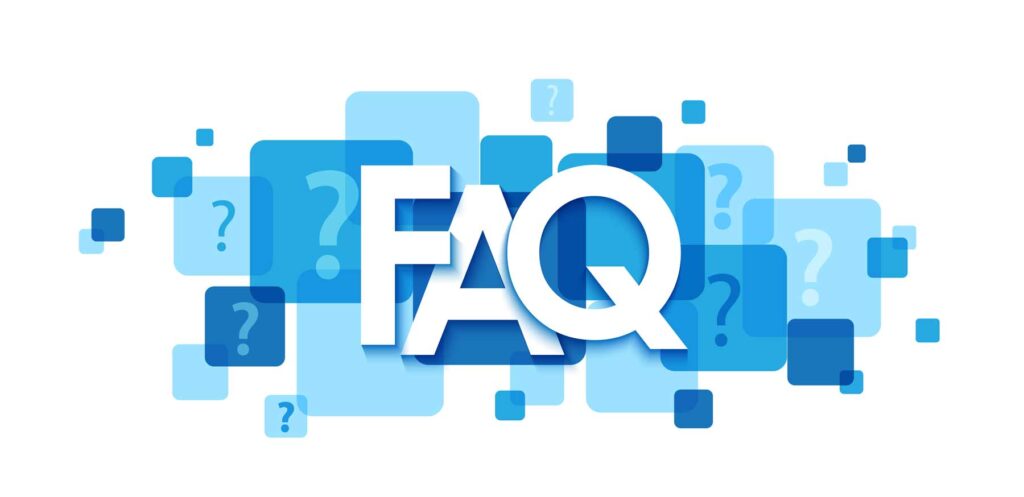
Is a marriage license public or confidential in California?
In California, a marriage license is confidential and can only be purchased by the couple from the County Clerk’s Office, presenting valid identification and paying the required fee.
How can I find my marriage records for free in USA?
To find your marriage records for free in the USA, you can contact the vital records office in the state where you were married. Additionally, you can also check online resources such as CountyOffice.org for access to marriage records.
What states have confidential marriage licenses?
Confidential marriage licenses are available in California and Michigan.
What is the point of a confidential marriage license?
The point of a confidential marriage license is to protect sensitive information by restricting access to only the couple, unless there is a court order. This helps prevent exposure to telemarketers, spammers, and identity thieves.
Does the type of marriage license affect divorce proceedings?
No, the type of marriage license does not impact divorce proceedings in California.
